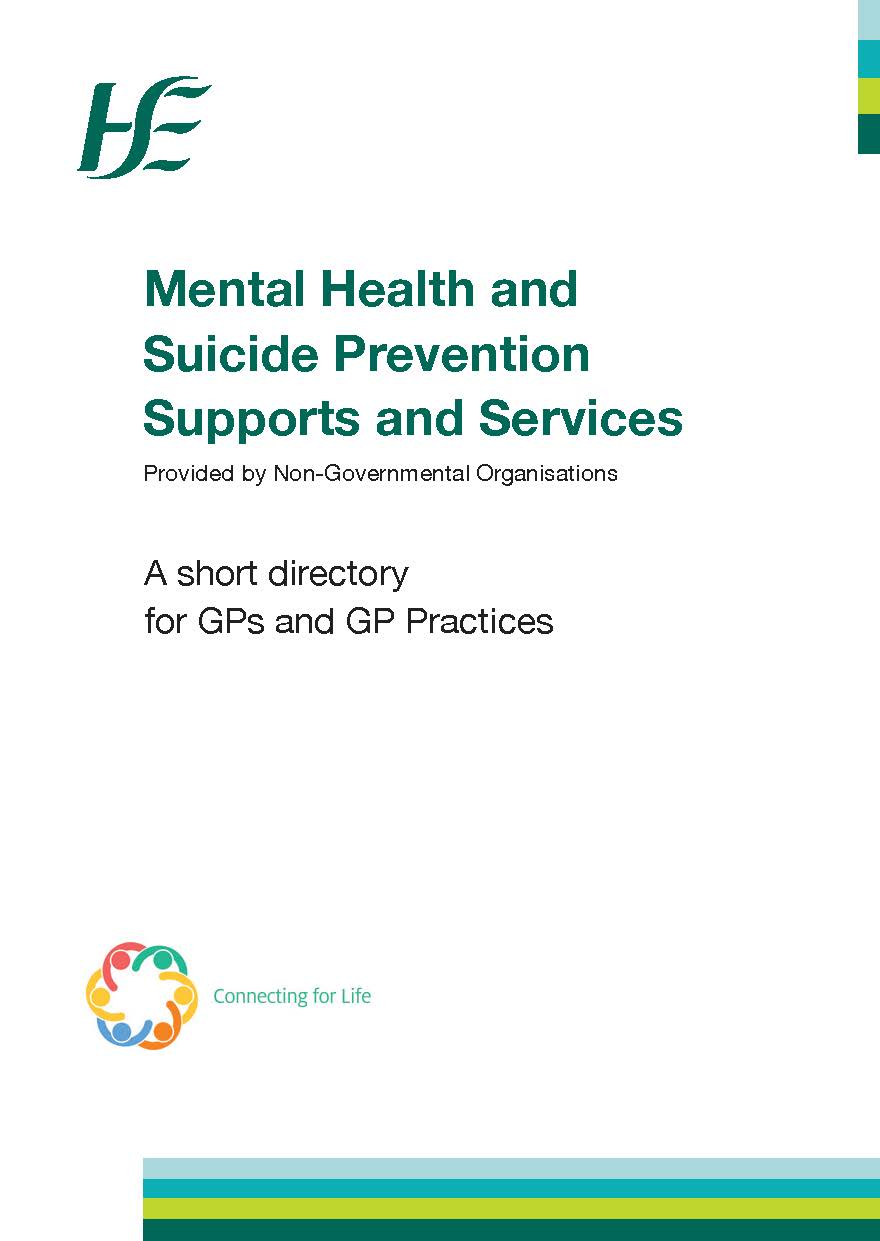- HSE.ie
- Connecting for Life
- Publications
Publications
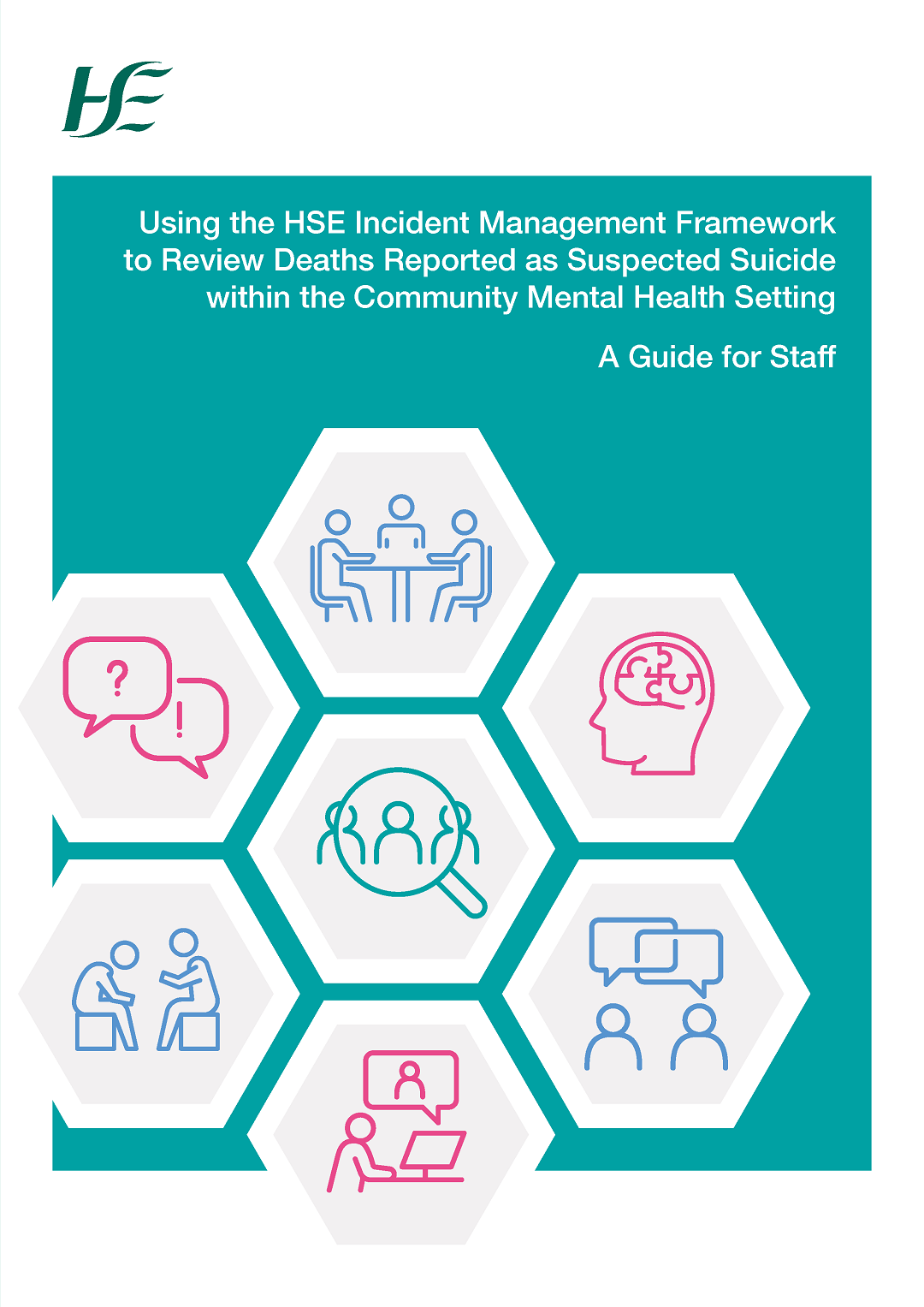
Incident Management Framework and Suspected Suicide
Using the HSE Incident Management Framework to Review Deaths Reported as Suspected Suicide within the Community Mental Health Setting: A Guide for Staff
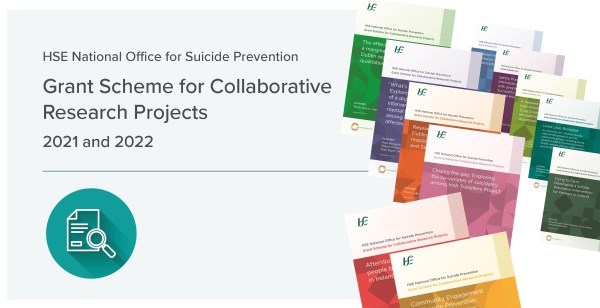
Grant Scheme for Collaborative Research Projects
A book of abstracts for the HSE National Office for Suicide Prevention's Grant Scheme for Collaborative Research Projects, 2021 and 2022.
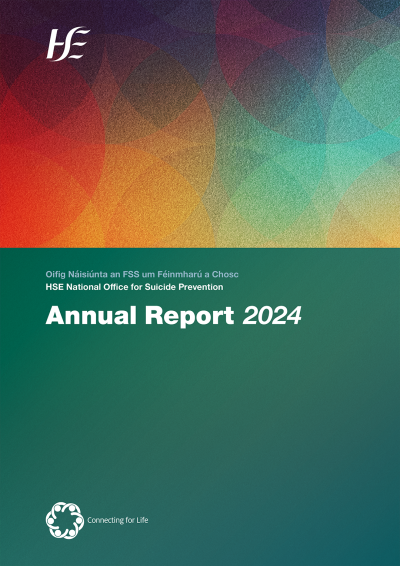
HSE National Office for Suicide Prevention Annual Report 2024
HSE National Office for Suicide Prevention Annual Report 2024
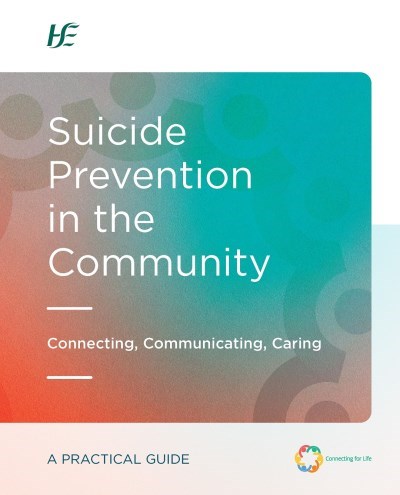
Suicide Prevention in the Community
Suicide Prevention in the Community - Connecting, Communicating, Caring: A Practical Guide
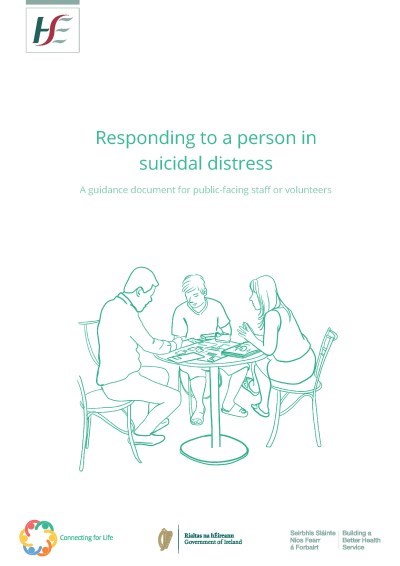
Responding to a person in suicidal distress - a guidance document
This guide aims to support staff and volunteers working in public-facing roles to interact with people who present or contact the service in distress or at risk of suicide and self-harm.
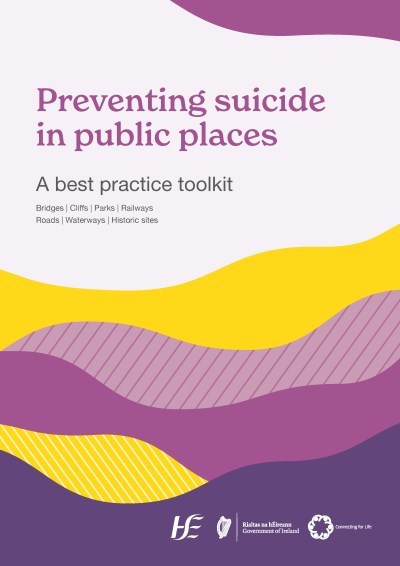
Preventing suicide in public places
Preventing suicide in public places: a best practice toolkit is a resource from the HSE National Office for Suicide Prevention (NOSP).
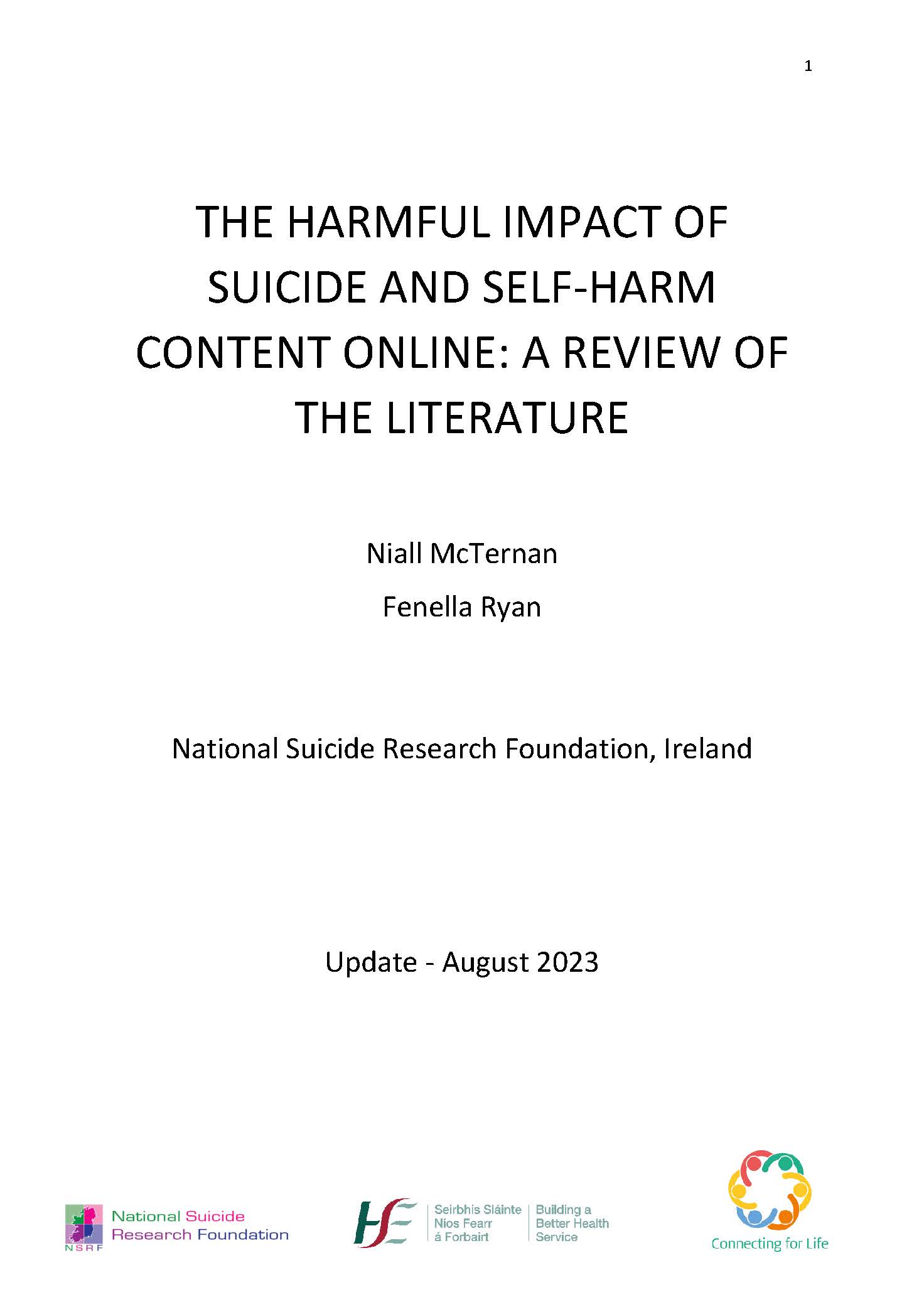
The Harmful Impact of Online Content - a Literature Review
The Harmful Impact of Suicide and Self-harm Content Online: a Review of the Literature. From the National Suicide Research Foundation.
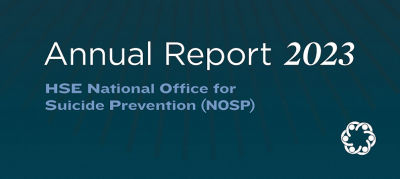
HSE National Office for Suicide Prevention Annual Report 2023
The annual report for the HSE National Office for Suicide Prevention (2023) provides information on all activities from that year.
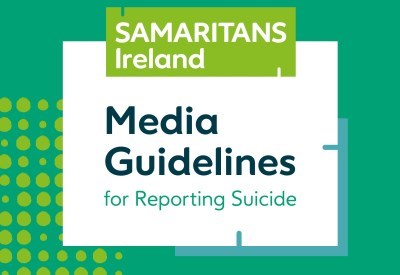
Samaritans Ireland: Media Guidelines for Reporting Suicide
Samaritans and IAS’ Media Guidelines for Reporting Suicide have been produced following extensive consultation with journalists and editors in the industry.
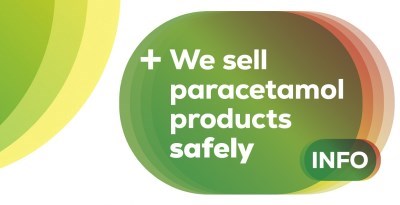
Safe sales of paracetamol
Information supporting the restrictions on the sales of paracetamol-containing medications.
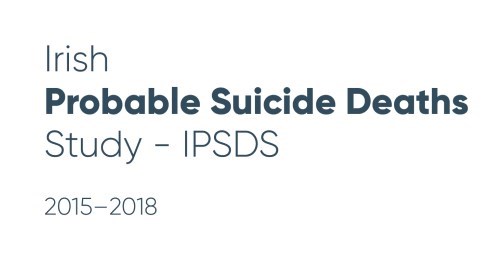
Irish Probable Suicide Deaths Study
The Irish Probable Suicide Deaths Study (IPSDS) presents information on probable suicide deaths in Ireland, for a four year period from 2015 to 2018
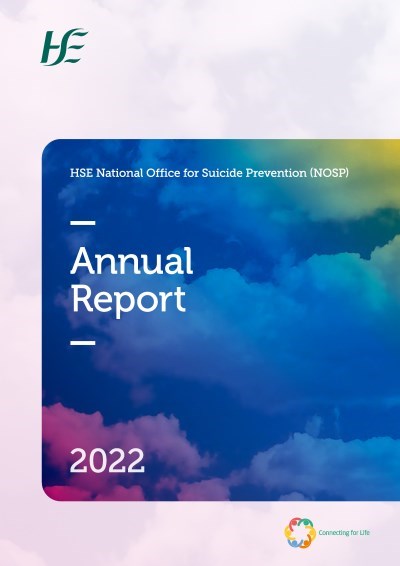
HSE National Office for Suicide Prevention Annual Report 2022
The annual report for the HSE National Office for Suicide Prevention (2022) provides information on all activities from the office for that year.
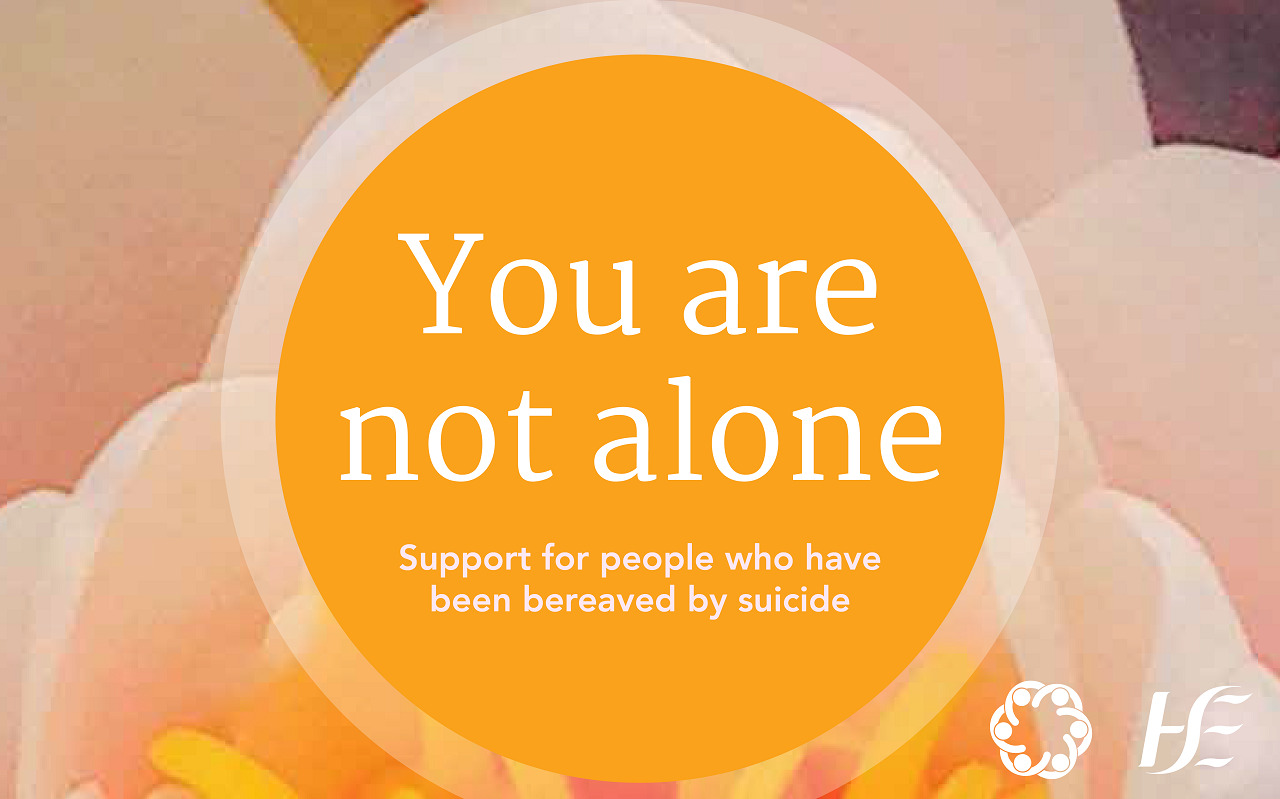
National Suicide Bereavement Support Guide
You Are Not Alone: Support for people who have been bereaved by suicide.
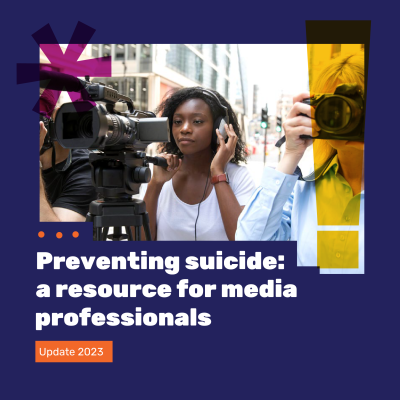
WHO: Preventing Suicide, a Resource for Media Professionals
In 1999, WHO launched SUPRE, its worldwide initiative for the prevention of suicide. This 2017 booklet is a 2nd revision of one of the resources prepared.
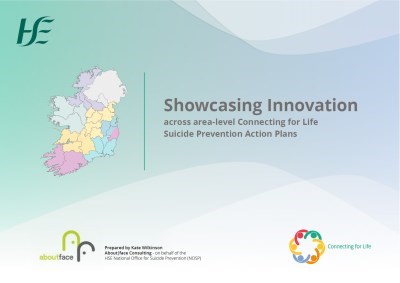
Showcasing Innovation across area-level CfL Action Plans
Showcasing Innovation across area-level Connecting for Life Suicide Prevention Action Plans
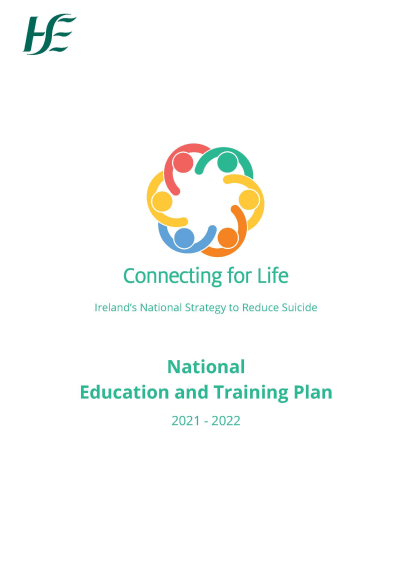
NOSP National Education and Training Plan
Education and training has been identified as one of the key components of work to achieve the vision of Connecting for Life.
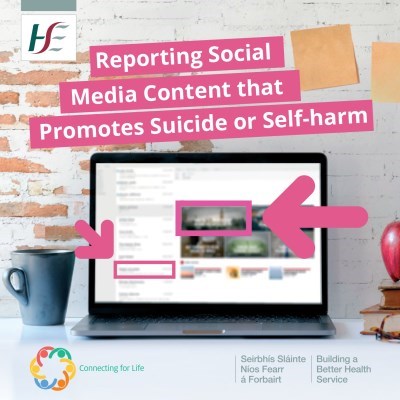
Reporting Social Media Content
A helpful booklet that outlines how some social media content related to suicide or self-harm can be harmful, and how it can be reported.
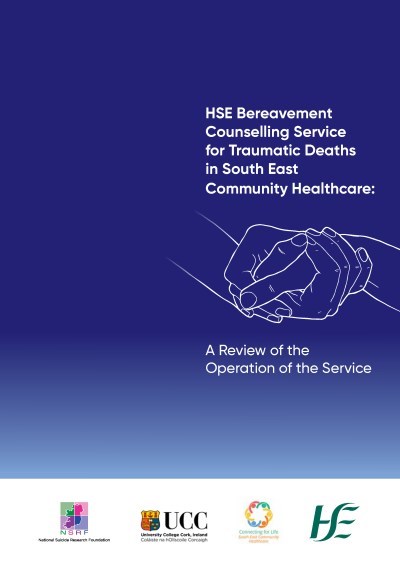
Counselling service review
HSE Bereavement Counselling Service for Traumatic Deaths in South East Community Healthcare, A Review of the Operation of the Service
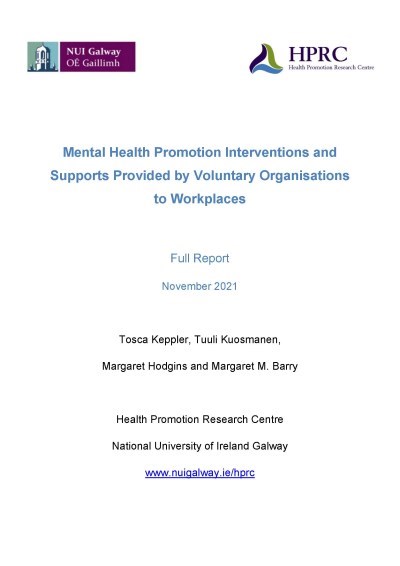
Research on workplace interventions and supports
Research on mental health promotion interventions and supports provided by voluntary organisations to workplaces

Suicide Prevention and Policy Making
These publications provide practical guidance and information for policy-makers in government departments about suicide prevention and how to integrate suicide prevention into policy-making functions.
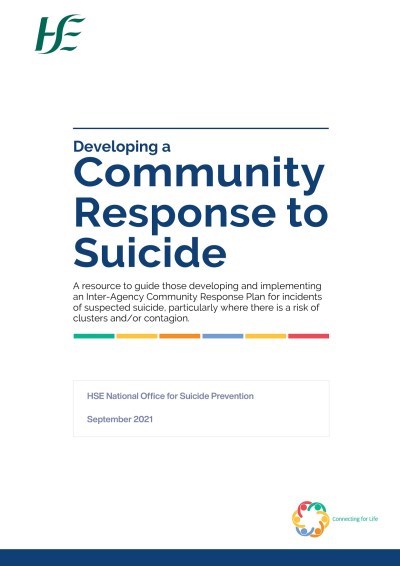
Developing a Community Response to Suicide
A resource to guide those developing and implementing an Inter-Agency Community Response Plan for incidents of suspected suicide.
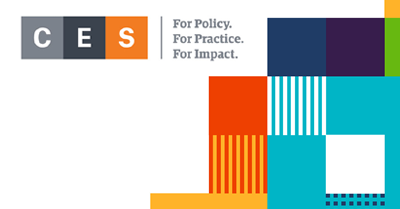
Review of Connecting for Life Research
A review of research carried out as part of Connecting for Life, from the National Office for Suicide Prevention (NOSP) and Centre for Effective Services (CES).
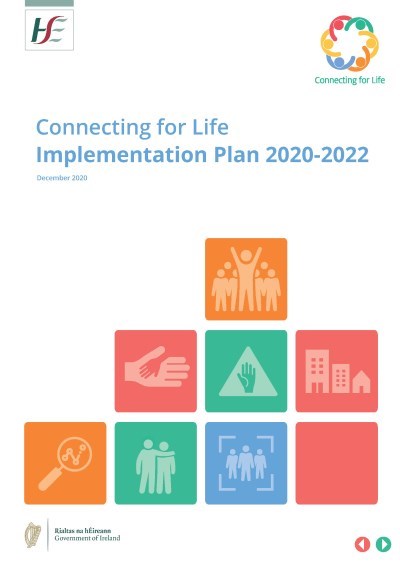
Connecting for Life Implementation Plans
These Implementation Plans describes the strategic and operational agenda that will be needed to further drive the implementation of Connecting for Life.
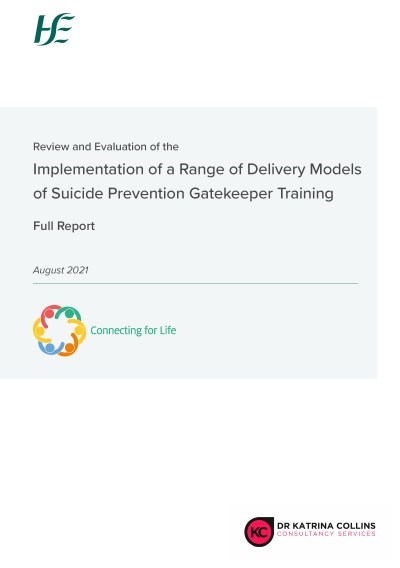
Review of Suicide Prevention Gatekeeper Training
This review was commissioned by the HSE NOSP. It comprised of a literature review and a stakeholder consultation of gatekeeper suicide prevention models.
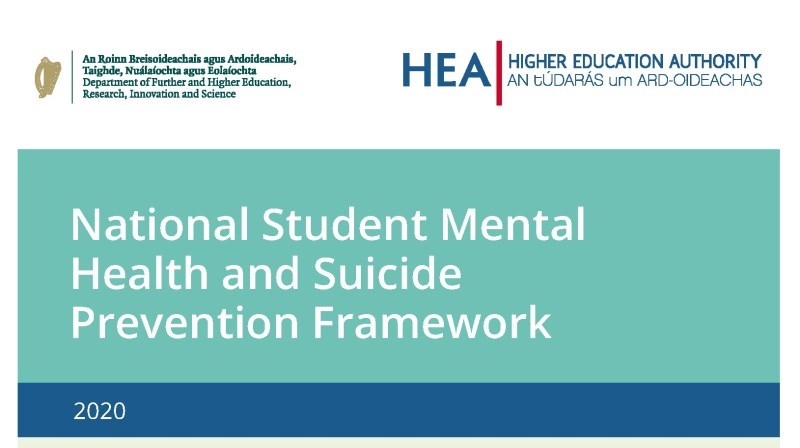
National Student Mental Health and Suicide Prevention Framework
This HEA National Framework was developed with students, mental health and suicide prevention specialists, academics, researchers and institutional staff.
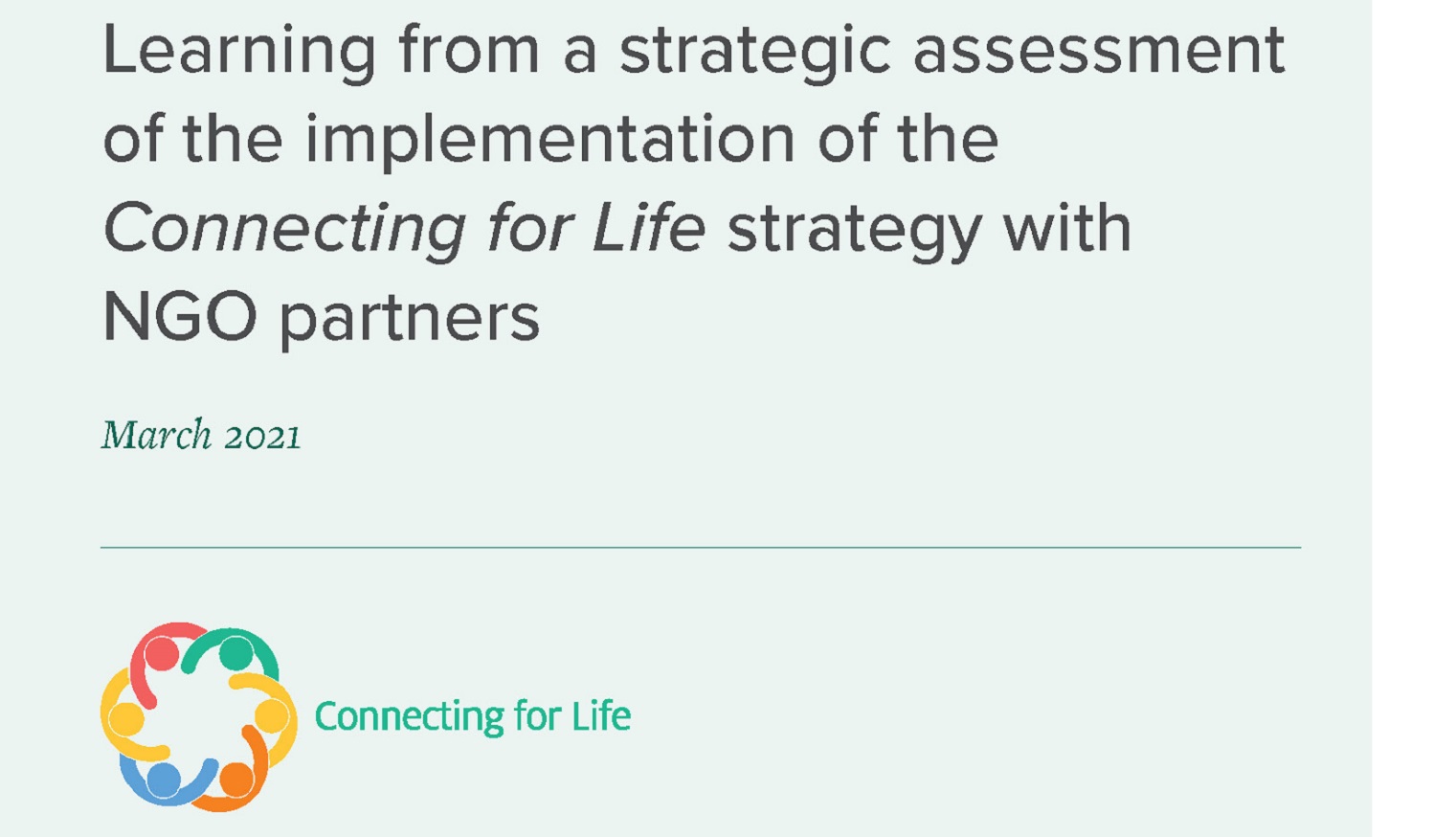
NGOs and Connecting for Life Implementation
Learning from a strategic assessment of the implementation of the Connecting for Life strategy with NGO partners
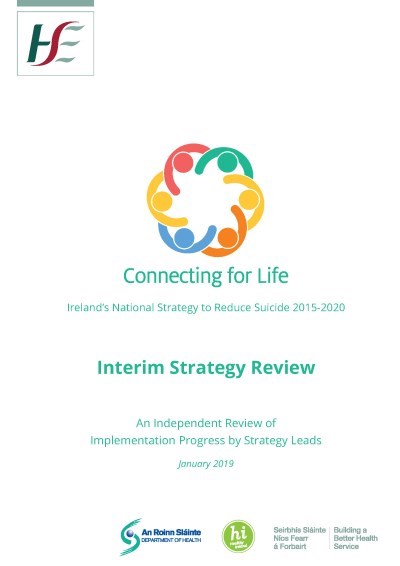
Connecting for Life Interim Strategy Review Document
The HSE National Office for Suicide Prevention (NOSP) invited the Connecting for Life (CfL) Evaluation Advisory Group (EAG) to undertake an independent Interim Review of CfL.
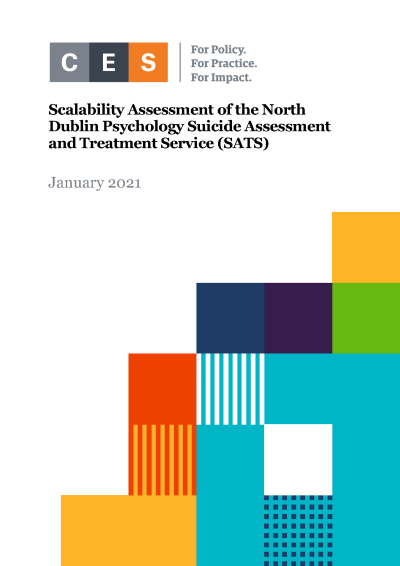
Scalability Assessment of the CAMS Approach
An assessment of scaling-up the North Dublin Adult Mental Health approach to implementing the Collaborative Assessment and Management of Suicidality (CAMS).
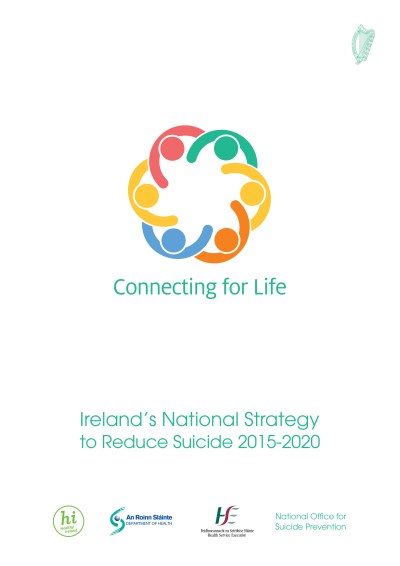
Connecting for Life: Ireland's National Strategy to Reduce Suicide
Connecting for Life is Ireland’s national strategy to reduce suicide 2015-2020.
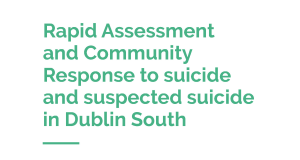
Rapid Assessment and Community Response to Suicide in Dublin South
This rapid assessment outlines the perceived area-level factors influencing a suicide cluster and related contagion in Dublin South.
- FILTER TAGS
- CONNECTING FOR LIFE
- SUICIDE PREVENTION
- NOSP
- SUICIDE
- NATIONAL OFFICE FOR SUICIDE PREVENTION
- MEDIA REPORTING
- IMPLEMENTATION
- SUICIDE PREVENTION IN THE COMMUNITY
- INCIDENT MANAGEMENT FRAMEWORK
- PARACETAMOL
- SELF-HARM
- PHARMACY
- RETAIL
- NATIONAL SUICIDE RESEARCH FOUNDATION
- ONLINE SAFETY
- IPSDS
- IRISH PROBABLE SUICIDE DEATHS STUDY
- MENTAL HEALTH PROMOTION
- WORKPLACES
- RESEARCH
Can’t find what you are looking for? Email us at info@nosp.ie

